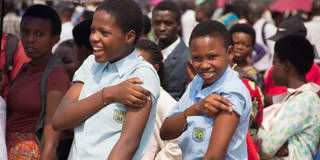What could an economically advanced country like the United States possibly learn from the health-care success of a tiny, impoverished African country like Rwanda? Two things: how to broaden access and improve health outcomes while sharply reducing the cost of care.
KIGALI – Imagine a country where some 90% of the population is covered by health insurance, more than 90% of those with HIV are on a consistent drug regime, and 93% of children are vaccinated against common communicable diseases including HPV. Where would you guess this enchanted land of medical equity is? Scandinavia? Costa Rica? Narnia?

KIGALI – Imagine a country where some 90% of the population is covered by health insurance, more than 90% of those with HIV are on a consistent drug regime, and 93% of children are vaccinated against common communicable diseases including HPV. Where would you guess this enchanted land of medical equity is? Scandinavia? Costa Rica? Narnia?